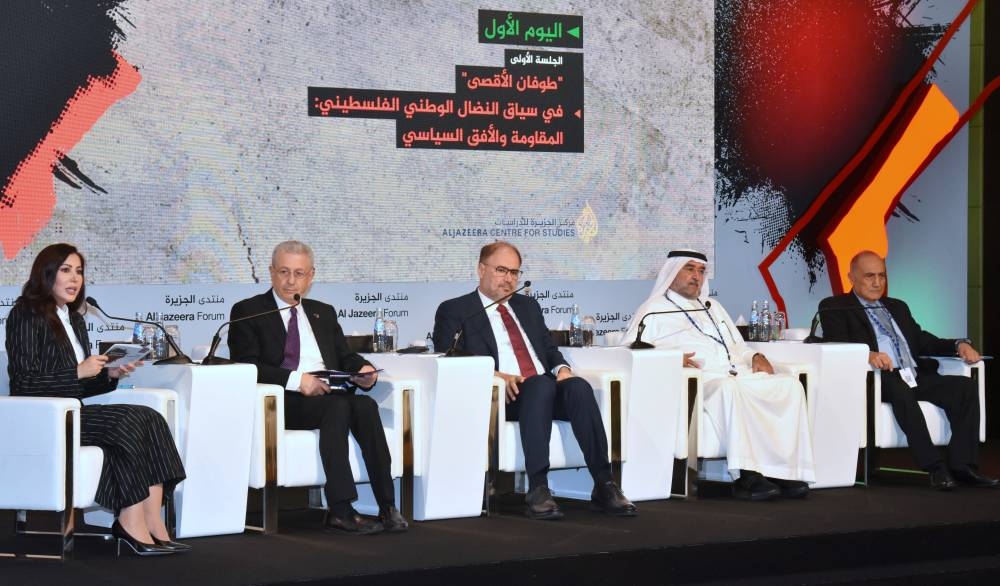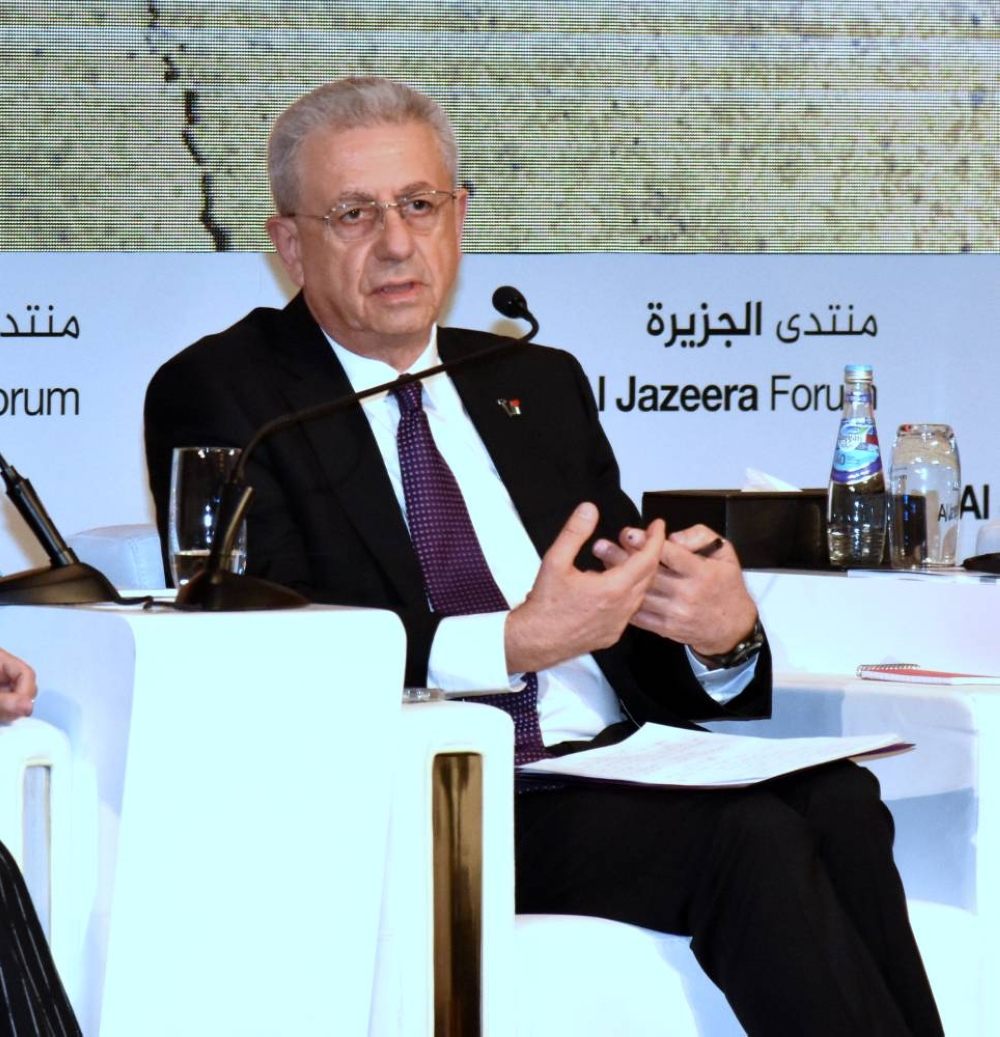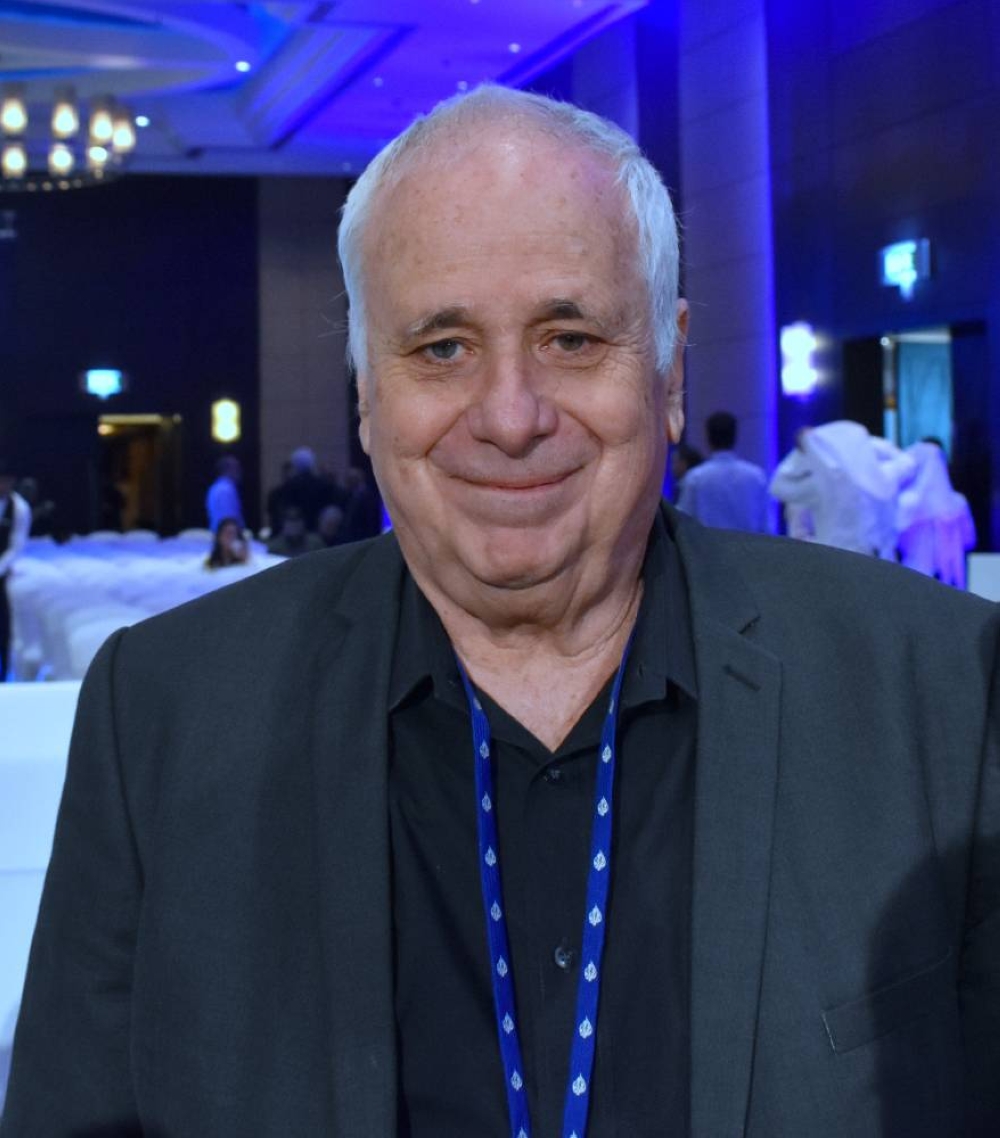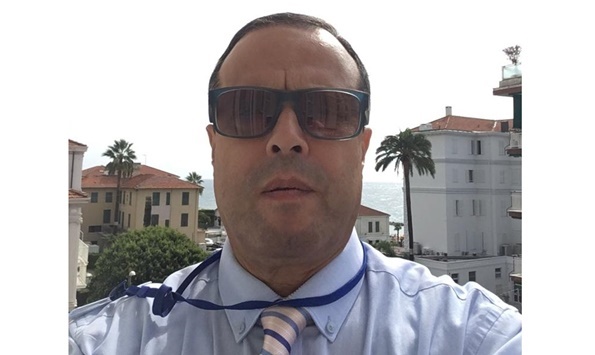The 15th Al Jazeera Forum was launched Saturday in Doha under the title “Transformations in the Middle East after ‘Tufan Al-Aqsa’” (Al-Aqsa flood).
The Forum highlighted the profound transformations brought about by the “Al-Aqsa Flood” operation and the ensuing Israeli war on Gaza, both at the Palestinian and Israeli levels and at the regional and international levels.
Experts, researchers and media professionals from various countries participated in the forum.
The first session yesterday on Al-Aqsa Flood in the Context of the Palestinian National Struggle focused on the context of the Palestinian struggle, the causes and factors that led to the “Al-Aqsa Flood”, and the political horizon of the Palestinian issue in light of the current international movement.
The speakers at the session pointed out that the “Al-Aqsa Flood” operation last year, despite its great humanitarian cost, revived the dialogue about the necessity of establishing a Palestinian state and the Palestinians’ right to self-determination.
It also reminded the world of the tragedies of the occupation, settlement, and the siege throughout the Palestinian territories.
In the second session, on 'The Repercussions of the War on Israel', the speakers discussed the Israeli internal situation, and the long-term repercussions of the “Al-Aqsa Flood” operation on the Israeli occupation, on the military, political, social, or economic levels.
The first day of the forum included two other sessions, one on 'International Justice in the Balance of the Israeli War on Gaza', while the second debated the Arab stances and the Palestinian issue.
Today, the participants will hold four more sessions that address the balances after the “Al-Aqsa Flood”, arranging the international agenda, and targeting journalists in light of the war on Gaza in addition to a session dedicated to special discourses with social media influencers, about the conflict of narratives regarding the war on the Gaza Strip.
Al Jazeera journalist Wael al-Dahdouh, who attended the forum, told Gulf Times: “I am still receiving treatment in Doha. My condition is improving.”
On the sidelines of the forum, Palestinian National Initiative secretary-general Dr Mustafa Barghouti spoke to Gulf Times on the latest International Court of Justice (ICJ) ruling.
“We know very well that Israel will not respond positively to the ICJ decision and the ICC (International Criminal Court), and we have to force them to do so,” he said. “The only way to force them is not only through the resilience and the resistance of the Palestinian people, but also through a very powerful boycott divestment sanctions campaign against Israel.”
“This is what we need now, and immediately,” Dr Barghouti added. “Only the sanctions and boycott will change the situation."
Director of the European Centre for Palestine Studies at the UK’s Exeter University, historian Ilan Pappe, who was born in Haifa told Gulf Times: “With regard to the Israeli–Palestinian conflict, I support the one-state solution, a unitary state for both Palestinians and Israelis.”
“The Jews and the Arabs used to live in peace together before 1948 ... why don’t we opt for a sustainable peace solution?” he posed.
Qatar
Al Jazeera launches 15th Forum on “Transformations in the Middle East after 'Tufan al-Aqsa'
Dr Barghouti: “Only sanctions and boycott will change the situation”

Participants at the first panel discussion.

Dr Mustafa Barghouti

Ilan Pappe

